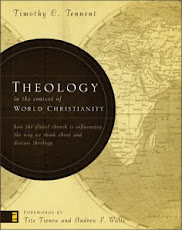Religion Vs. Christianity: Then and Now
I am partaking in Tim Challies most recent Reading the Classics project. Basically, Tim picks a book that he considers to be a classic of Christian literature, everyone reads a chapter each week, and we all discuss it via comments on his weekly blog post. The book we are reading this time is William Wilberforce's A Practical View of the Prevailing Religious System of Professed Christians, in the Higher and Middle Classes in this country, contrasted with Real Christianity.
This book is more commonly known as Real Christianity or sometimes A Practical View, but I support the full title. If I ever publish a book (which is doubtful), I would like to follow this paradigm for choosing a title. In fact, I wish all books were required to have the thesis of the book as the title, this practice would simplify the process of explaining to someone else the content of the book your reading or deciding which book to read next. Honestly, who had a clue what Rob Bell's Velvet Elvis was about before opening the book?
Wilberforce's book, although written a long time ago in a far away land, already appears to have much application for the contemporary American church. It is discouraging how close the initial assessment of the local churches in his day mirrors American Christianity. Many recent publications, such as Michael Horton's Christless Christianity or Ronald Sider's Scandal of the Evangelical Conscience seem to have much of the same purpose. Wilberforce clearly communicates his intention in the Introduction:
"The main object he has in view is, not to convince the skeptic, or to answer the arguments of persons who avowedly oppose the fundamental doctrines of our religion; but to point out the scanty and erroneous system of the bulk of those who belong to the class of orthodox Christians, and to contrast their defective scheme with a presentation of what the author apprehends to be real Christianity."
Here are a few of my favorite quotes from the first chapter, in which Wilberforce assesses the contemporary Christian mindset of his day regarding the importance of Christianity in general:
"How different, nay, in many respects, how contradictory, would be the two systems of mere morals, of which the one should be formed from the commonly received maxims of the Christian world, and the other from the study of the Holy Scriptures."
"… no one expects to attain to the height of learning, or arts, or power, or wealth, or military glory, without vigorous resolution, and strenuous diligence, and steady perseverance. Yet we expect to be Christians without labour, study, or inquiry!"
"Yet, is it not undeniable that with the Bible in our houses, we are ignorant of its contents; and that hence, in a great measure, it arises, that the bulk of the Christian world know so little, and mistake so greatly, in what regards the religion which they profess?"
This book is going to be convicting; I just have this feeling. It seems ludicrous whenever we consider how much Christianity appears to have changed since Wilberforce's time, yet it hasn't really changed at all. We have fancier buildings, shinier suits (or ripped jeans), sophisticated technology, entertaining media, talented praise bands, and seminary educated pastors; nonetheless, we still have a ridiculously low view of the Gospel's importance in our everyday life. If we refuse to give Christ the position of authoritarian dictator over our lives, then we are committing idolatry. Christ cannot be lowered to the office of a democratic president who occasionally vetoes a decision to commit a very consequential or public sin. Christ is LORD; nothing else will do. Anything else cannot adequately be assigned the label of Christianity.
Furthermore, and this should be obvious, there are some applications if Christ is Lord of your life, which is comparable to him being your authoritarian dictator (except for the fact that Christ loves us infinitely and most dictators do not love their people at all). If Christ is Lord, then he is Lord over your time, your habits, your finances, your hobbies, your job, your relationships, your family, your words, your thoughts, your priorities, your goals, your dreams, and any other aspect of your life.
How do we respond to a proper understanding of Christ's Lordship? Three actions come immediately to mind: confession, repentance, and praise. Confession and Repentance because we are all trying to hold back some area of our lives from his Lordship. He either is Lord or he is not; there is no democracy in Christianity. However, this understanding should not drive us to anger over his Lordship or anxiety over our attempts to withhold areas of our lives. Christ's Lordship should drive us to Praise. We don't suffer under his Lordship; we are blessed to be allowed under his Lordship. He satisfied the wrath of God in order to bring us into his kingdom. Praise God for being both just and the Justifier. Praise Christ as our Lord and Redeemer.



















Post a Comment